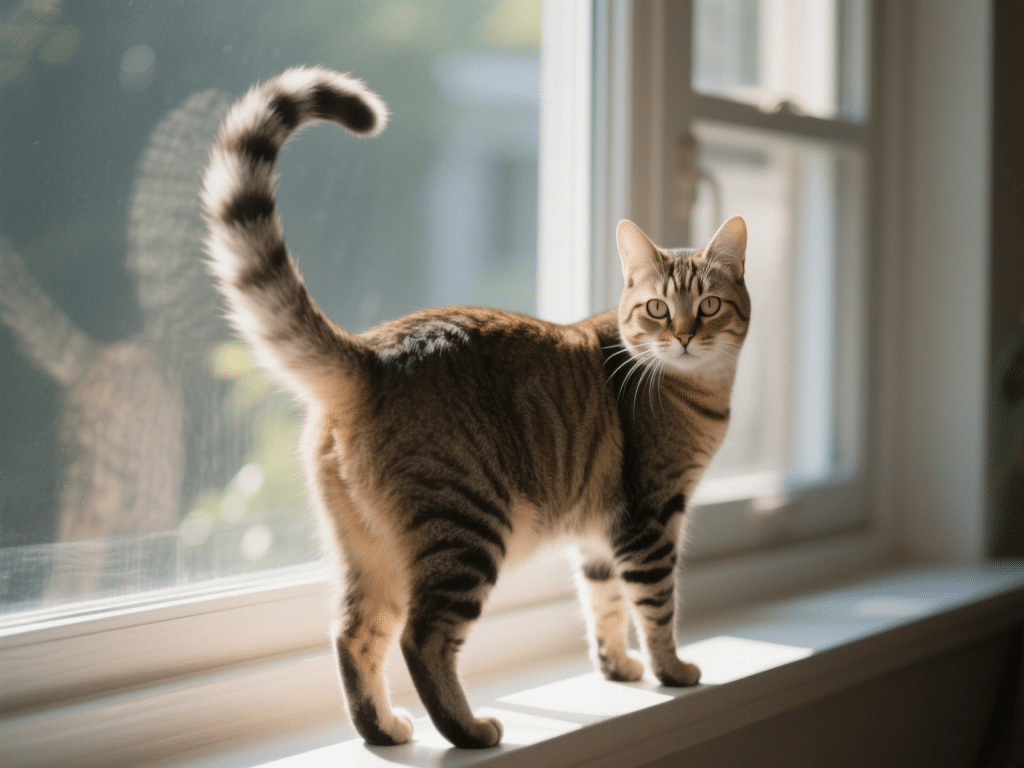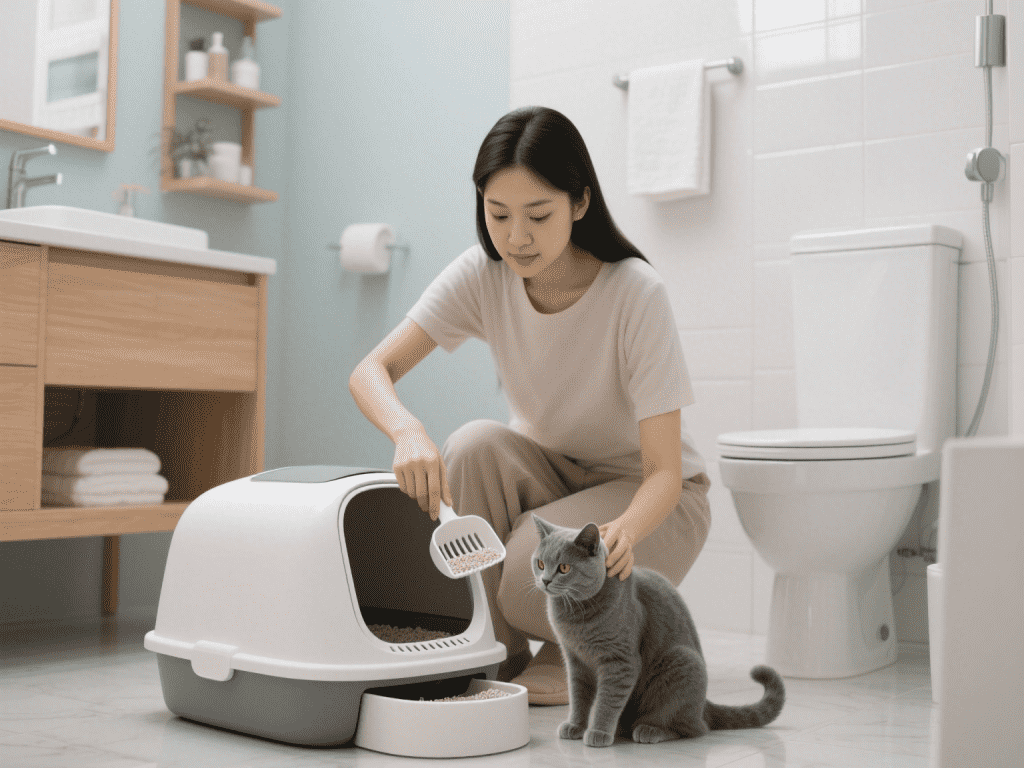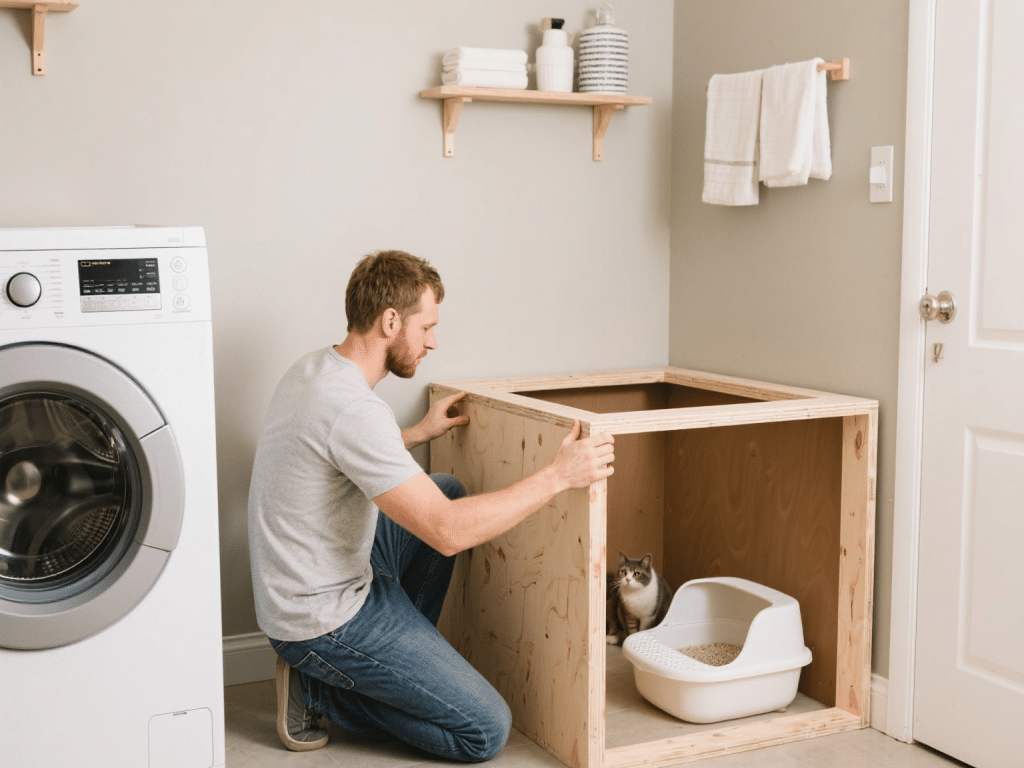
Tail Talk: Deciphering Feline Tail Movements and Their Meanings
In my fifteen years as a certified cat behaviorist, I’ve learned that a cat’s tail is ...

Few behaviors are as universal in the feline world as the instinct to bury waste. As someone who’s managed dozens of litter boxes in multi‑cat homes, I can attest: watching a cat carefully scratch at the edges, then cover their deposit, isn’t just cleanliness—it’s a window into thousands of years of evolution. This article unpacks why cats bury their poop, the nuances of the habit, and how you can ensure a healthy litter routine.
Predator Avoidance:
In the wild, burying waste masks a cat’s scent from both prey and rivals.
Territorial Messaging:
Some big‑cat species actually leave scat exposed to mark territory—domestic cats bury to stay discreet.
Substrate Matters:
Texture: Most cats prefer fine‑grained, unscented litter that mimics sand or soil.
Depth: Aim for 2–3 inches; too shallow invites digging beyond, too deep can be off‑putting.
Box Style:
Open vs. Hooded: Hooded boxes offer privacy but can retain odors; open pans provide ventilation.
Size & Accessibility: Large cats or seniors need roomy, low‑entry trays.
Medical Causes:
Arthritis, urinary tract infections, or digestive upset can make covering painful.
Stress & Environment:
Dirty boxes, competition, or placement near noisy appliances may discourage digging.
Action Step: Scoop daily and fully change litter weekly. In multi‑cat homes, provide one box per cat plus one extra.
Over‑Burying:
Cats that scratch obsessively may be anxious or experiencing a litter aversion.
Non‑Burying:
A defiant cat may leave waste uncovered to assert dominance in a crowded household.
Quiet Location:
Avoid high‑traffic or loud areas like laundry rooms during wash cycles.
Consistent Routine:
Keep boxes in the same spot; cats thrive on predictability.
Positive Reinforcement:
Praise or offer treats when your cat uses and buries correctly.
The act of burying is far more than tidy paws—it’s an ingrained survival skill and a barometer of physical and emotional health. By catering to your cat’s instinctual preferences and monitoring changes, you’ll ensure a cleaner home and a contented companion. Next time you see that confident cover‑up, appreciate the ancient instinct at work.

In my fifteen years as a certified cat behaviorist, I’ve learned that a cat’s tail is ...

Houseplants can improve air quality, reduce stress, and bring life into our homes—but no...

Let’s face it — the smell of a used litter box can overpower even the cleanest home. A...

IntroductionScratching is an instinctive behavior for cats to maintain claw health, stretc...

IntroductionChoosing the right shampoo is essential for maintaining your pet’s skin and ...

When to Spay or Neuter Your Cat: Health Benefits ExplainedThe Optimal Timing for Cat Steri...
Comments on "Nature’s Cleanup Crew: Why Cats Bury Their Poop and What It Means" :